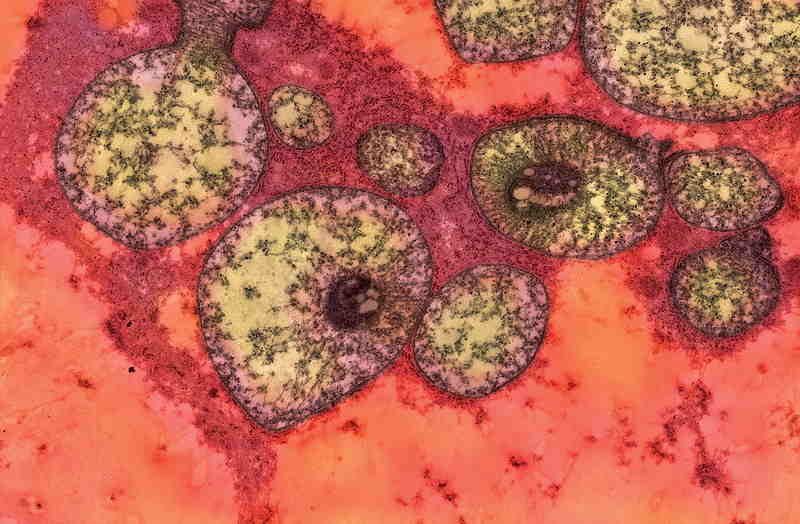Aggregated News

"Abnormal Mouse Mitochondria"
by National Institutes of Health (NIH)
is licensed under CC BY 2.0
Mitochondrial disease, whether inherited or acquired over the lifespan, can result in devastating, multisystem symptoms and premature death. Although mitochondrial disease can result from mutations in the nuclear genome, a majority of adult-onset and a quarter of childhood-onset disease arises from mutations in mitochondrial DNA (mtDNA). Housed in the mitochondria, the powerhouses of cells, mtDNA exclusively encodes genetic information for mitochondrial function — namely energy production.
With no available treatments for mitochondrial disease, personalized symptom management is the primary therapy. However, recent technological advancements in mitochondrial genome editing give hope that therapies are within reach.
Shifting heteroplasmy
A single human cell has only one nucleus, but it can house hundreds of mitochondria. Each mitochondrion contains numerous copies of circular mtDNA that are continuously replicated. This adds up to nearly 1000 copies of mtDNA per cell. In a given cell, pathogenic mutant mtDNA often coexists with normal mtDNA in a state referred to as heteroplasmy. The presence of mutated mtDNA by itself doesn’t cause...



